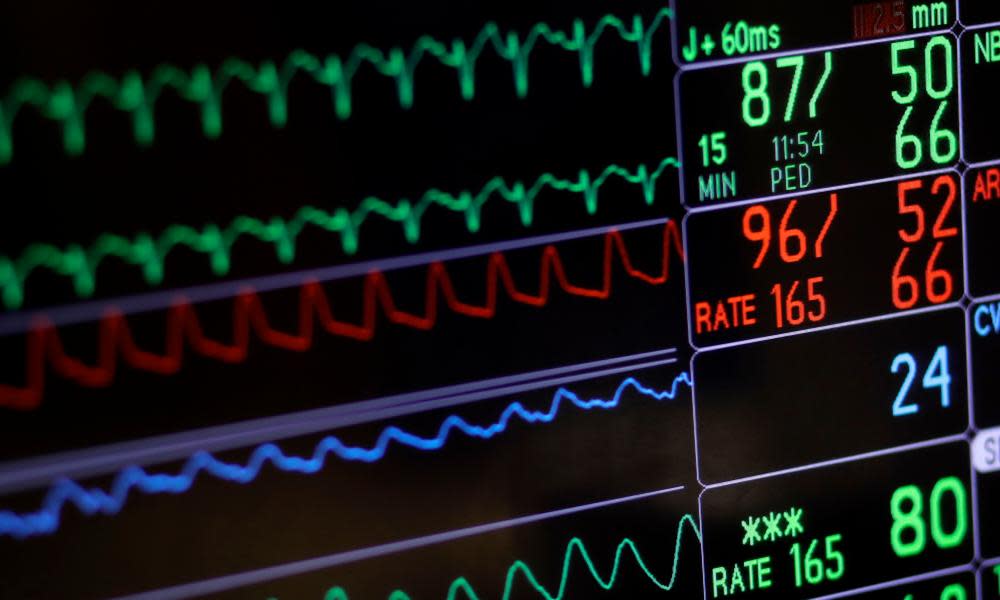Health bosses warn of heart disease emergency in England

England is engulfed in a cardiovascular disease emergency, health bosses have said, as stark figures reveal there have been almost 100,000 excess deaths since the start of the Covid pandemic.
Analysis of official government data suggests that more than 500 people a week are dying needlessly from heart disease, heart attacks or strokes. There have been 96,540 extra cardiovascular-related deaths since March 2020, according to the report by the British Heart Foundation.
In the first year of the pandemic, Covid-19 infections led to a surge in excess cardiovascular deaths, the charity said. But while deaths from Covid-19 have since fallen, the number of cardiovascular disease deaths have remained much higher than expected.
The BHF said other factors were likely to be driving the continued increase in excess deaths involving cardiovascular disease, including severe and ongoing disruption to NHS heart services.
“Covid-19 no longer fully explains the significant numbers of excess deaths involving cardiovascular disease,” said Dr Sonya Babu-Narayan, a consultant cardiologist and associate medical director at the BHF. “Other major factors are likely contributing, including the extreme and unrelenting pressure on the NHS over the last few years.
“Long waits for heart care are dangerous – they put someone at increased risk of avoidable hospital admission, disability due to heart failure and premature death. Yet people are struggling to get potentially lifesaving heart treatment when they need it due to a lack of NHS staff and space, despite cardiovascular disease affecting record numbers of people.”
The BHF is calling for action on three fronts: the prioritisation of NHS heart care, renewed focus on preventing the causes of cardiovascular disease, and greater research efforts to unlock new treatments and cures for the future.
“As more and more heart patients wait longer and longer, we need to see a specific and long-term commitment from government to fast-track improvements in cardiovascular care now and for the future,” Babu-Narayan said.
Dr Charmaine Griffiths, the charity’s chief executive, said it was “deeply troubling” that so many more people with cardiovascular disease were losing their lives. England was “firmly in the grip of a heart and stroke care emergency”, she said.
“If little changes, we could continue to see a sustained rise in death rates from cardiovascular conditions that undoes decades of scientific progress to reduce the number of people who die of a heart attack or stroke. There is no time to waste – government must take control of this crisis to give heart patients and their loved ones hope of a better and healthier future,” Griffiths said.
Prof John Greenwood, the president of the British Cardiovascular Society, said the high numbers of excess deaths were worrying but not surprising.
“We know that Covid has caused direct [Covid leading to new cardiovascular disease], indirect [reduced treatment and prevention of cardiovascular disease] and long-term effects [cardiovascular disease and long Covid],” he said. He added that there must be an “urgent prioritisation” of cardiovascular disease prevention and treatment, as well as an increase in staff to tackle the backlog of patients waiting for treatment.
“Added to this, we need a strong public health strategy from government to promote healthy behaviours and prevent heart disease in the first place.”

 Yahoo News
Yahoo News 
